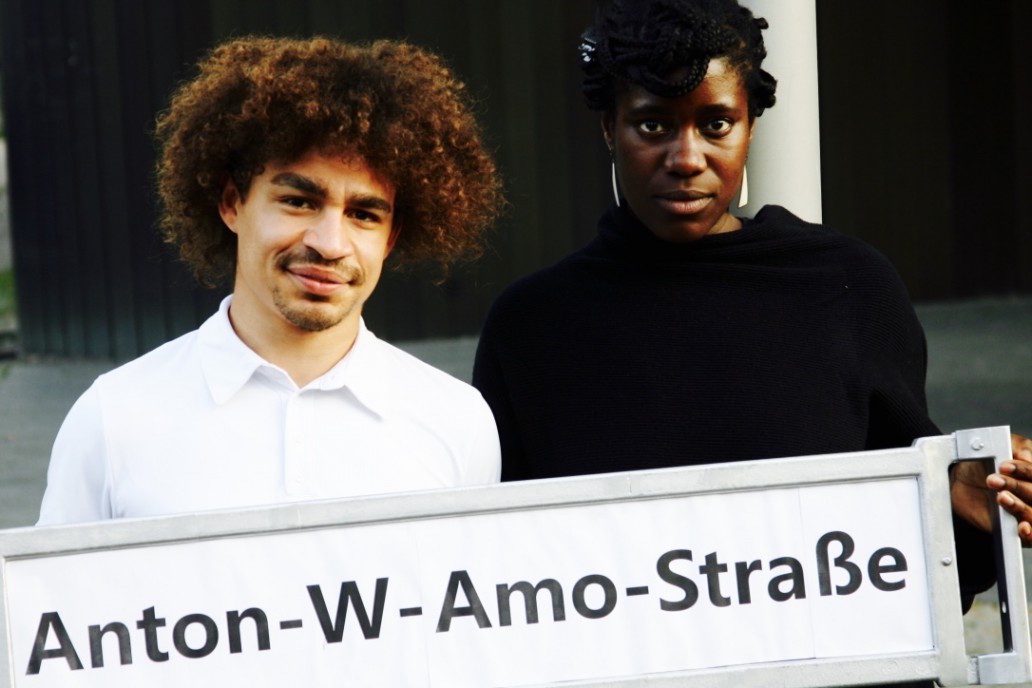Racism is a recurrent subject in C&. The Western malaise permeates our entire lives and that includes the art world which often presents itself as a beacon of hope and open-mindedness. That is, until incidents such as the one last month at the theater Münchner Kammerspiele, where Kasper König made a series of racist comments. In the same panel, the veteran curator also racially abused artist and discussant Cana Bilir-Meier, who went on to start the open letter Es kotzt uns an – We are sick of it that denounces racisms in the arts. We’ve collected five distinct perspectives from art practitioners on this issue.

Protests for renaming the M*straße in Berlin Mitte. Photo: Tahir Della
.
Peggy Piesche | Literary and Cultural Studies Scholar
Surprise is not really the first thing that comes to mind with regard to the incident that occurred during the panel discussion at Münchner Kammerspiele. Or rather, it doesn’t even need to. Racism is not only common practice in the German cultural sector, it is inherent to its structure. The current debates around institutional racism in the creative sector are therefore not only an adequate, timely reaction with an uplifting effect. Above all, they are extremely important as they boost a resonance space for all the experiences of BPoC artists who, like Cana Bilir-Meier, must feel unheard and disconnected from solidarity in recurring situations of everyday racism. In this respect the collective outcry “Es kotzt uns an/We are sick of it” is important and appropriate! And even if in times of #MeToo and #MeTwo these kinds of collective gestures of empowerment are quickly labeled as inflationary, they are deeply empowering for all those exposed to the normalization of this cultural racism every day. And this is not only sickening but also immensely infuriating. Which provides so much more agency than the feeling of powerlessness. In this sense let us hope we’ll be sick of racism for a bit longer!
Eric Otieno | Scholar, Writer and Facilitator
Recent statements that call out all forms of discrimination in the German art landscape are obviously welcome and worth all the support they can get, especially in the current political climate. There is, however, cause for concern about how such one-off statements decontextualize themselves from other efforts against discrimination. By failing to use their visibility to recall and reference past and ongoing efforts to make the art world more inclusive, such (again, very necessary) interventions inadvertently implicate themselves with novelty by framing these important and urgent contestations as emerging phenomena. Recalling and platforming existing efforts would demonstrate how various strategies to circumvent and dismantle discriminatory structures and relations of power have always been part of the German art landscape and that they will always be as long as this remains necessary.
Will Furtado | C& Editor and Writer
Every day I walk past a café in Cologne that prides itself on selling Kolonialwaren (colonial goods). They sell products such as tea and cocoa to a mostly elderly clientele. So far so harmless, just as the café’s name, Oma Janßen (Granny Janßen), implies. These shops still exist across Germany and symbolize how insidious and ingrained the Western colonial mentality is. They also exemplify how and why more often than not older people are given a pass for their “old school” racism. At the same time they demonstrate that the issue we have to constantly confront and be outraged by is often hidden behind a superficial appearance. In the imperialist white supremacist capitalist patriarchy we live in, what Cana Bilir-Meier went through is only symptomatic and that definitely needs to be directly and openly addressed. However, it should not only be a personal reaction; rather, it must be the foundation we all need to contribute to regularly – as seen with the protests to remove street names in Berlin that celebrate colonialism and all other efforts that may not seem as urgent.
mahret ifeoma kupka | Curator, Writer, Thinker
An anti-racist agenda always means a loss of power for the individual. You must be prepared to relinquish a piece of the cake, give up your spot for those whose voices are currently more important in the process of creating an equal society in which everyone has equal agency. Anyone not willing to share is contributing to the perpetuation of racism. Working with an anti-racist agenda also means being willing to understand that racism is a discriminatory practice deeply rooted in the structure of interhuman relations, which consistently affects our thoughts and actions and not only the way a few admitted racists act. Working with an anti-racist agenda means taking a step back and genuinely listening, to all those talking about their experiences – always and everywhere. It means taking on different perspectives and understanding these as an enrichment of one’s own life. Anti-racism is a gift, therefore I want to express my deep gratitude to all those raising their voices, uncompromisingly denouncing social injustices, who join forces and support each other for an open society celebrating diversity.
Magnus Elias Rosengarten | Writer and Artist
One of the most perfidious effects of everyday racism is its timeless nature. Within seconds we are made to feel as if we don’t belong, forced to embody the Other, or serve as a placeholder for insufficiencies of the white psyche. The colonial logic has the power to dominate our sense of time. This is what happened in Munich. Although we might hold numerous degrees or awards from prestigious European and international universities, this cancerous institution called white supremacy desperately attempts to prevail in order to implement hierarchies of the human. Incidents like the one at Münchner Kammerspiele prove that the illness isn’t cured yet, that symptoms keep flaring up and appropriate treatment needs to continue. Therefore, our hope can only be the precious knowledge, the wisdom, the art and the lives we have created over centuries out of the many bellies of the beast.
More Editorial